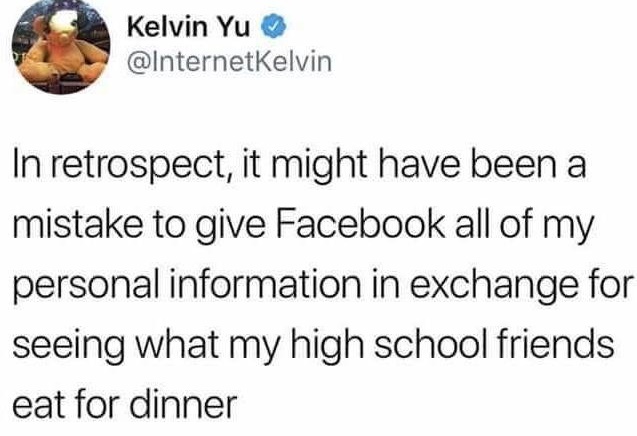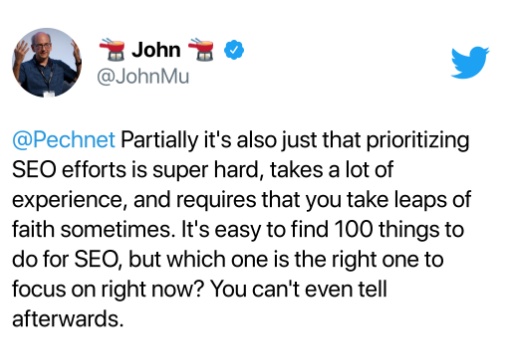1. Good Monday Morning
It’s January 10th. Spotlight is off next week to commemorate Dr. King’s birthday. Each year I read his Letter From a Birmingham Jail (PDF). I encourage you to read or revisit this powerful message contained in only 5½ pages.
Today’s Spotlight is 1,325 words — about a 5 minute read.
2. News To Know Now
Quoted:“We really try to encourage people. Just get past the 17th of January.” — Strava CEO Michael Horvath to Bloomberg. Strava measures distances run or cycled for millions of users and has dubbed next Monday as Quitter’s Day–when the company sees its biggest user decrease each year.
a) Uber users need to be vigilant about email from the company. For at least the third time since 2016, security researchers demonstrated how hackers could send targeted phishing emails that are seemingly from Uber. It’s not a simple email spoof, but an actual vulnerability in Uber’s email system. The company hasn’t fixed the vulnerability and says that it is outside the scope of their bug reward program.
b) Pabst might believe that the enemy is within. An employee of the brewer tweeted an X-rated comment about “Dry January,” a pop culture event when people stop drinking alcohol beginning with the new year. Pabst deleted the tweet and said that the employee showed poor judgment.
The Pabst employee still likely had a better day than someone in the IT department at Kyoto University after 77 TB in 34 million files were lost due to a backup error at the university’s supercomputer. One terabyte can store about 6 million pages or one quarter-million images.
c) The original Winnie-the-Pooh story, Hemingway’s The Sun Also Rises, recordings by Rachmaninoff and compositions by Irving Berlin and the Gershwins are among the works that entered the public domain in the U.S. on January 1. Duke Law School published a nifty explainer and list of highlighted works.
3. Search Engine News — The Cost of Bad Translations & IndexNow
The Microsoft-backed IndexNow protocol notifies search engines when content on a website has been added, deleted, or changed. The notifications about tens of thousands of websites are going to Microsoft and Yandex. Web teams of all sizes can now easily use IndexNow as a WordPress plug in or via Cloudflare.
This is a great time to remind you that Google may be synonymous with search, but that Microsoft Bing processes more than one-quarter of all US search volume.
Google search executive John Mueller confirmed last week that poor quality translations posted on a website can harm that site’s rankings in other languages even for pages that were not involved. Mueller was quoted during a year-end webinar by Search Engine Journal, “So in short, I guess if you have a very low quality translation that’s also indexed and that’s also very visible in search then that can definitely pull down the good quality translation as well or the good quality original content that you also have.”
Unabashed partner plug: our friends at Uno Translations have been helping our clients with translations into many languages for a decade. Our SEO advice remains constant. Use people who speak the language rather than translation software.
4. Spotlight Explainer — Biometrics in 2022
Few people like passwords. Tech security people hate them. Tech’s goal is to replace them with biometrics and eventually use your face, fingerprints, irises, and even your gait to identify you. From there, you can pay for goods and services or access your workplace. The outlook isn’t all rosy. Count on mistaken identities and privacy issues, but also a lot of positive things.
Continuing Adoption of Biometrics in 2022
This period might be compared to the time when people other than remote field staff began carrying mobile phones. There’s been growing acceptance of biometrics in consumer devices. Yubico security keys that unlock websites or devices now include fingerprint instead of password access. Meanwhile, concertgoers at Colorado’s iconic Red Rocks can scan their palm instead of using a paper ticket for entry. The technology was built by Amazon for use in its convenience stores and as it spreads to different systems, more people are becoming comfortable with it.
Amazon’s Own Employees Are Suing Over Biometrics
Illinois has long been recognized as having some of the strongest biometric protection laws in the country. Those laws will be tested in a class action brought by Amazon warehouse employees in the state who say that the company’s activities are illegal. The suit alleges that Amazon scanned the faces of warehouse workers with thermal imaging cameras to detect fever during the COVID-19 pandemic. Workers say that the company disclosed the information to third parties and did not delete the data as required. The suit passed a significant hurdle last week when a judge declined to dismiss the case.
The Industry Expects Biometrics Legislation
JD Supra reports that almost thirty states had some form of biometric legislation pending in 2021. There is also a proposed federal regulation under review as well as FTC enforcement actions related to facial recognition technology. Legislative action is also pending in both Europe and the UK.
Biometrics Aren’t Just For Humans
A new biometric Smart Dog Collar debuted at last week’s CES 2022 show. The collar monitors location and health data, including respiration and heart vital signs, and will alert owners when there are abnormalities.
5. Did That Really Happen? — Betty White Did Not Die From a COVID Vaccine Boost
Betty White’s agent has emphatically countered an online rumor that falsely claims that her death was caused by a reaction to a COVID-19 vaccine booster shot. Jeff Witjas, the actress’ agent, said that a quote about the vaccine booster attributed to the actress was false and that she did not have a booster shot three days before she died.
6. Following Up — FTC Warns Companies To Fix Log4j Vulnerability
We told you right before Christmas about the Log4j vulnerability that is believed to exist on up to 25% of the computer servers in use today. The Federal Trade Commission is warning US organizations to apply the security patches that fix the software or face potential enforcement actions. As Gizmodo’s coverage elaborates, the FTC can sue a company for security practices that endanger consumer data.
7. Protip — Don’t Charge Devices in Freezing Temps
January’s cold temperatures require another kind of advisory. This one is about charging devices that have been out in freezing temperatures, and the advice is simple: warm up the device before you charge it.
Imagine that a phone or tablet was accidentally left in a car overnight or otherwise subjected to below-freezing temperatures. Experts say that charging the device before it has a chance to warm up could permanently reduce the battery’s capacity or even cause it to explode. Details are available at Lifehacker.
8. Screening Room — Ryan Reynolds Reads
9. Science Fiction World — Drone Delivers Defib Unit In Minutes
Swedish company Everdrone used an autonomously operated drone to deliver a defibrillator unit to a physician who was administering CPR to a man in his driveway. The physician saw a 71-year-old man who was shoveling snow collapse with a heart attack. While he aided the man, a passerby called authorities, who sent an ambulance and the Everdrone unit. The device arrived in only three minutes, and the man was saved.
10. Coffee Break — Scale-A-Tron
This nifty Mapbox tool lets you draw a shape on a map in your browser and move that shape to anywhere else on a map. I was able to measure my neighborhood and drag it to other places I had lived to see the scale. Or go to your favorite outdoor spot and drag it to your downtown area to see how they match up.
11. Sign of The Times



